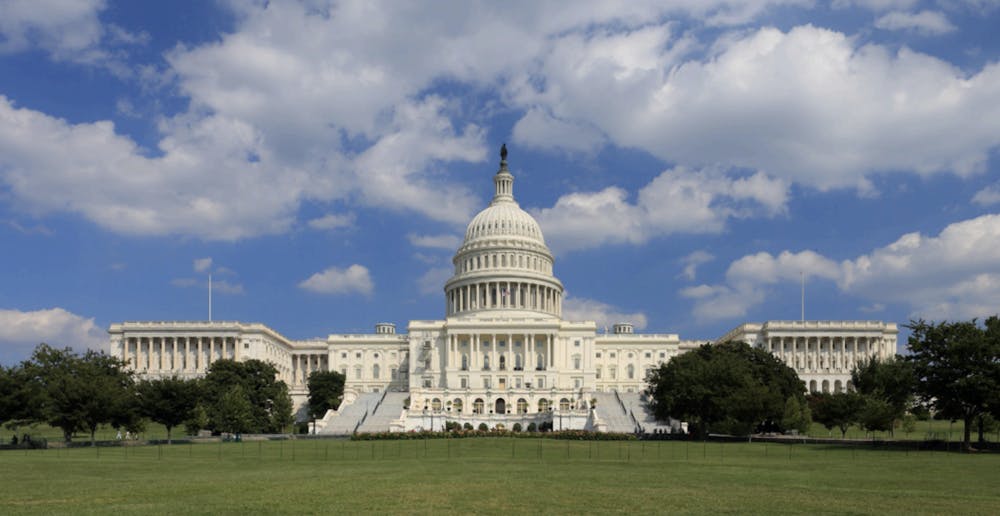By The Signal Editorial Board
As journalists, we constantly hear the warning bells about artificial intelligence taking our jobs, which have been grouped into the “creative works” genre. While some governments and public leaders utilize AI for good, others have joined the ranks of wrongdoers who exploit the emerging technology’s power, and there is not enough outrage.
Artificial intelligence can be used for good measures. We’ve seen this with the Centers for Disease Control and Prevention using AI to manage public health data more efficiently. Some chatbots can also help answer pressing questions at late hours, like helping to find that database for your essay due in an hour.
Artists of various media have been given a silent sword to fight against the computer beast that haunts our career dreams and aspirations, but we are not the only ones who should be speaking up.
While we can nod our heads in acknowledgment of the good that has been done, we can’t look past some of the bad, like an AI-made minister or government officials using AI for deepfakes and making a mockery of others.
Journalists can report on the misdeeds of software usage, but how is the public supposed to protest any usage when it’s infiltrating our lives more every day? A simple Google search is always accompanied by an AI overview now (although if you put “-AI” at the end of your search, most times it prevents the overview).
There is less outrage about problematic AI usage because of how often it appears in people's lives, to the point where some people may find themselves numb to it after seeing funny AI-generated videos and using ChatGPT to help them brainstorm ideas. People may even be unaware of its pervasiveness, as around 64% of Americans use AI and do not realize it, according to Gallup News.
Despite this growing normalization of AI, it is dangerous to ignore the negative impact AI can have on politics. AI is being used in political campaigns, which determine how people vote for local and world leaders, which determines how local and global events will be handled. It is, in fact, that deep.
The New York Times writes that “the era of A.I. propaganda is here.” Propaganda has always been designed to elicit an emotional response, but the use of AI to do so is especially worrisome, as it can lead to the spread of disinformation while appearing realistic or believable.
Some states have laws regarding political deepfakes. Twenty-four require disclosure of its usage, but there is no regulation at the federal level. With fragmented laws, as some argue to speed up AI usage while others think it should slow down, it's easy to see how this disorganization will lead to confusion.
Social media has changed ways of life in many ways, and society has adapted. Hateful content would be seen as unprofessional in the hiring process for the average person and could negatively impact their career. That being so, why is it not considered unprofessional for world leaders to post AI-generated propaganda content on their social media platforms? This is hypocrisy.
On top of this, the tech companies that lead in AI research and development have power, inadvertently, over information and politics. No one knows what to do about the AI push from tech companies, with some welcoming it and others shunning it, leading to insufficient oversight. Some people theorize that AI could be a detriment to humanity, causing more net harm than good, but the developments are so new that people are largely unsure. AI companies are currently being left somewhat unchecked, with a lack of regulations that could be a danger to society.
In other nations, AI is being used in politics to an even higher degree than they are used in the United States. In Albania, an AI chatbot was given a cabinet-level position, a first for the entire world. It was named the “Minister of State for Artificial Intelligence.” It’s name is Diella and it is depicted wearing a traditional dress. In a response video, the AI minister said, “Some have labeled me unconstitutional because I am not a human being. That hurt me.”
When AI is designed to assist with decision-making in politics using algorithms, it raises the question of whether or not AI would be programmed to be corrupt, even if leaders, like Albanian Prime Minister Edi Rama, claim they are not. It is misleading to say that a chatbot like Diella is designed to fight corruption when it was created by human minds. How can it be ensured that the chatbot actually works to serve the country?
Political leaders are meant to be public servants as they make some of the most important decisions in the world, affecting humanity directly. Delegating such a task to AI could lead to biased decisions made under the guise that they are not.
AI has been shown to have bias in various fields, potentially exposing ill intentions behind its creators. AI usage in U.S. healthcare systems showed bias by prioritizing healthy White patients over sickly Black patients for additional care management, because the focus was on cost data and not care needs.
AI’s infiltration of politics is irresponsible. Using AI in any capacity to mislead the public is unethical. AI is a tool, but humans are the users. It can so easily be corrupt and used for manipulation, just as any other tool, even if that was not the aim of the invention.
People have expressed becoming exhausted from political news and climate, and adding on being an AI watchdog onto one’s plate could be the breaking point. Citizens should be able to focus on the policies and actions taken by their political leaders, and not their unethical AI usage.
A world where nobody knows what to trust as real or unreal due to AI’s pervasiveness is a dystopia nobody wants to live in. Where there are benefits to AI, there are also downsides, and now the only way forward is to understand how to regulate it. Critical thinking is important now more than ever.







